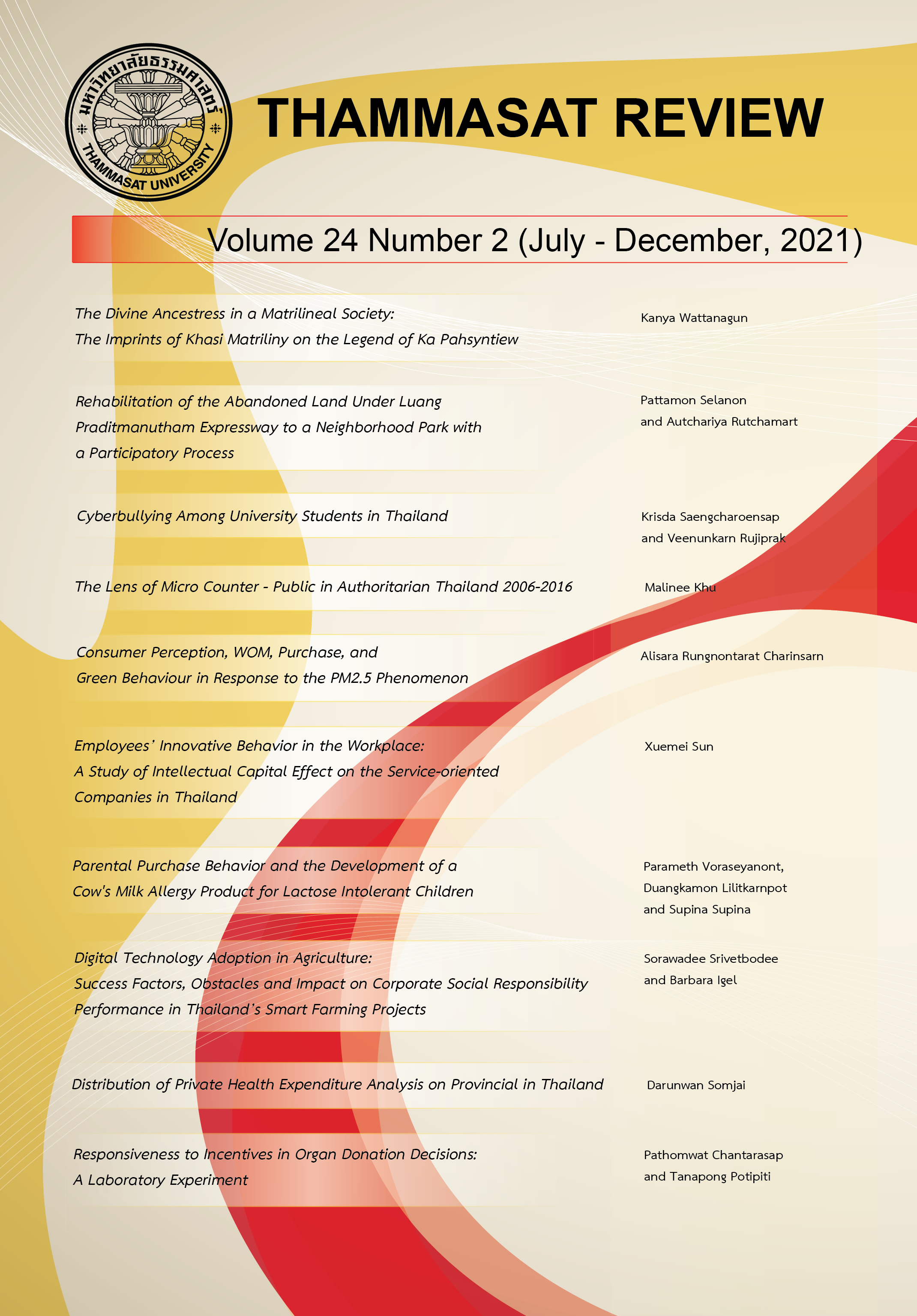Digital Technology Adoption in Agriculture: Success Factors, Obstacles and Impact on Corporate Social Responsibility Performance in Thailand’s Smart Farming Projects
Keywords:
Digital technology adoption, loT, AI and big data, Smart farming solutions, Corporate CSR performanceAbstract
Technological growth is fueling the global economy in every sector, including agriculture. This study’s objectives are (1) to examine how the Internet of Things (IoT), Artificial Intelligence (AI) and big data technology can improve agricultural productivity for small-scale farmers in Thailand, (2) to investigate the success factors and impediments to this technology adoption in Corporate Social Responsibility (CSR) projects, and (3) to explore the link between technology adoption in two CSR projects in Thailand with the CSR performance. This study adopts an inductive qualitative approach with in-depth face-to-face interviews with two leading Thai IT companies that successfully helped local small-scale farmers to implement smart farming solutions. Both firms employed smart technology, such as IoT, using sensors, AI-enabled mobile device applications, and big data to help farmers plan, operate, and monitor their crops and paddy fields. The study’s findings add new knowledge to both academic theory and business practice by showing how corporations not only can help small producers to successfully adopt smart technology to scale their social impact but also promote implementing more proactive CSR strategies in their industry.
Downloads
Published
How to Cite
Issue
Section
License
The opinions and ideas expressed in all submissions published in Thammasat Review are solely that of the author(s) and do not necessarily reflect that of the editors or the editorial board.
The copyright of all articles including all written content and illustrations belong to Thammasat Review. Any individuals or organisation wishing to publish, reproduce and distribute a particular manuscript must seek permission from the journal first.








